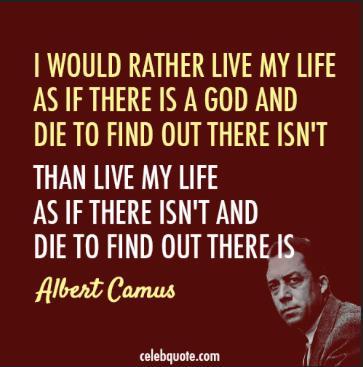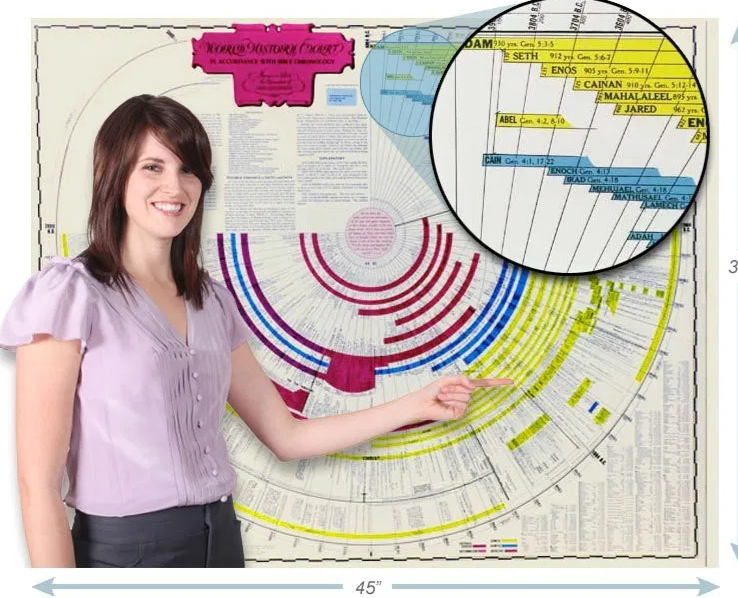Belief in God Is Not a Choice

The problem here, however, is that we as human beings factually do not have a choice. Non-religious people, and I include myself, are not at liberty to wake up one morning and believe that God has a plan for us. Religious (monotheistic) people are similarly constrained; they find it unthinkable that our universe was not created by an omniscient and omnipotent being. The human condition forces us to fall into one of two buckets: we either believe in things for which there is a preponderance of evidence, or we don’t.
There are millions of people who believe that the Earth is a shade over 6000 years ago; in fact, there is a very popular biblical calendar sold online (see below) that ostensibly maps various books of the Old Testament to events in recorded human history. The problem with this, for me at least, is that accepting it as truth means discarding every stitch of anthropology, paleontology, archeology, geology, astrophysics, and molecular biology–all disciplines for which there is iron-clad evidence, the body of which is growing larger by the hour.
Keep in mind that there is more to this than theology and philosophy; there is a deeply pragmatic side here as well. For example, our ever-growing understanding of molecular biology, especially genetics is helping us wipe out entire classes of disease, which over time, have caused untold human misery. Contrast this to all the prayers made that God do things like restore the legs of those who lost them in war. The fact that God has never once responded to one of these prayers should be taken into account in evaluating the relative merits of these arguments; that seems only fair.
Again, everyone of us finds ourselves in one bucket or the other. Which of the two we exist in is a decision made more, I believe, by the way our brains are wired than a choice based on free will.

